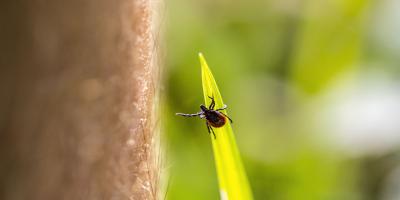Lyme Disease: Protecting Your Outside Staff From Ticks

If your business has outdoor areas or requires employees to perform outdoor work, they may be at risk for tick bites. Tick bites irritate the skin and can be a gateway for disease, the most prevalent of which is Lyme disease. Before sending your employees or even your customers outside, be aware of the dangers of Lyme disease and how you can prevent it from spreading to those involved in your business.
An estimated 300,000 Lyme disease infections occur each year. People living in New England, the Mid-Atlantic states, and the Upper Midwest are at the greatest risk. People call Lyme disease the Great Imitator because its symptoms can mimic several other diseases. As a result, it is easy to misdiagnose, which means it is often mistreated. Lyme disease can affect any organ in the body, including the heart and the brain. Patients with Lyme disease suffer from fever, joint and muscle aches, headaches, and fatigue.
While antibiotics can cure most cases of Lyme, lingering muscle and joint aches or nervous system symptoms can occur. This is known as post-Lyme disease syndrome, and it cannot always be remedied.
Once a tick has found a host, it will bite the victim and remain there for the duration of its life – or until it is pulled off. A person doesn’t always feel tick bites; most people don’t realize they have any tick bites until they find the tick sometime later. If you find a tick, you must remove it as quickly as possible. The longer an infected tick lingers, the higher the chances are of contracting Lyme disease.
To remove a tick from the skin properly, make sure that the tick’s head doesn't remain behind. If the tick is pulled out, you risk the head staying embedded in the skin, causing an infection. If you are bitten by a tick, remain aware of the symptoms of Lyme disease. If any symptoms begin appearing, ask for a Lyme disease test. Typically, tick bites will develop a red “bull’s eye” bruise, which can make them easier to spot.
To decrease the chances of a tick bite, employees should consistently use an anti-tick spray and wear preventive attire if possible when going outside. Use a repellent with DEET on the skin, making sure to follow the product instructions carefully. Keep in mind that these sprays can fail if improperly used or if they are past their expiration dates. Try to avoid moist or humid environments, particularly those in or near wooded and grassy areas, and walk in the center of trails. Showering after being outdoors can help wash away any unattached ticks, and also provides an opportunity to check your skin for ticks.
Smart business owners consider long-term tick solutions, such as JP Pest’s Tick Control Program. We protect your property by using more than one control method at a time to provide real results. Our tick-control methods are proven to reduce tick populations by up to 90 percent.
Do you have a team of employees to safeguard while they work outside, or do you just love the outdoors and want to stay safe? Either way, we can help! Contact JP Pest Services for a free commercial consultation or residential estimate today!



